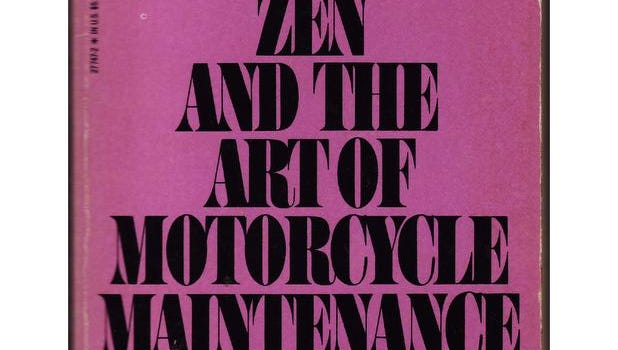‘Zen and the Art of Motorcycle Maintenance’
, 2022-07-15 17:48:31,
“The Buddha, the Godhead,” he writes, “resides quite as comfortably in the circuits of a digital computer or the gears of a cycle transmission as he does at the top of a mountain or in the petals of a flower.”
“A study of the art of motorcycle maintenance is really a miniature study of the art of rationality itself.”
“Metaphysics is a restaurant where they give you a 30,000 page menu and no food.”
“The only Zen you find on the tops of mountains is the Zen you bring up there.” — Robert Pirsig
When I was 20-years-old and an undergraduate English major in college, I read the novel “Zen and the Art of Motorcycle Maintenance: An Inquiry into Values” by Robert Pirsig, and it changed my life. Published in 1974, it sold over a million copies in its first year and sold more than 5 million copies overall. His novel topped best-seller listings for a decade, making Pirsig arguably the most widely read philosopher of the modern era.
For those who are unfamiliar with the rigorousness of Pirsig’s work, it’s easy to stereotype “Zen and the Art of Motorcycle Maintenance” with the dozens of the so-called “Zen and the Art of” books; some titles include “Zen and the Art of Murder,” “Zen and the Art of Stand-Up Comedy,” “Zen and the Art of Disc Golf,” “Zen and the Art of Productivity,” “Zen and the Art of Poker,” “Zen and the Art of Collecting Old Cars,” “Zen and the Art of Business Communication,” and “Zen and the Art of Vampire Slaying.”
While Zen is a system of philosophy and meditation that is arguably applicable to all dimensions of existence, when so many people seek to speak for and define an ancient tradition, often without any actual knowledge or training in the tradition, it can raise issues of cultural misappropriation and misrepresentation.
Pirsig, however, was a serious, lifelong practitioner and student of Zen. He first became interested in Zen while living in East Asia. He studied with revered Zen Master Shunryu Suzuki, and after earning a Ph.D. in Asian philosophy in Benares, India, he returned to the United States to work as a college professor.
There is a classic saying in Zen: “Great suffering equals great enlightenment.” And Pirsig’s life embodied this Zen stance. At age 9 he was assessed as having an IQ of 170, and he entered college at age 15 to study chemistry. Being a genius arguably increased his difficulty. He stammered, had difficulty making friends and was expelled from the University of Minnesota due to failing his…
,
To read the original article, go to Click here





